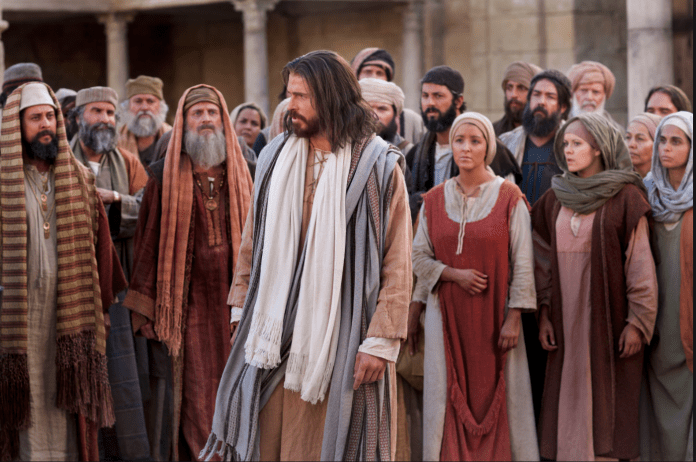One of the American Jesuit writers whom I read in my younger years before I became a priest was John Powell. He wrote a book titled “Why am I afraid to love?” Then he followed it up with another book titled “Why am I afraid to tell you who I am?” As soon as you flip the first page of that book you get an answer to the question posed by the title. It says, “I am afraid to tell you who I am because if I tell you who I am, you might not like who I am. And that’s all I’ve got.”
Fear of rejection, they say, is one of the most common reasons why people pretend to be what they are not.
As a Bible teacher, I must confess to you that I feel strongly about the fact that the Pharisees have been so vilified and regarded as caricatures of hypocrisy. Bible scholars tell us that that kind of a caricature of the Pharisees was probably more reflective of the situation of the evangelists than that of Jesus himself. I think they’re no different from the rest of us, who have been conditioned since childhood into thinking that if we want to be good we have to avoid evil.
The basic source of inspiration of the Pharisees for their rule of life is Ps. 1:
“Happy is the man who follows not the counsel of the wicked
Nor walks in the way of sinners,
nor sits in the company of the insolent,
but delights in the law of the LORD
and meditates on his law day and night.”
The term “Pharisee” literally means “the separated ones.” They were an elite group of educated Jews who believed that they had to distance themselves from the world in order to remain clean, righteous, and ritually pure.
As part of a huge family of 13 (seven boys and six girls), I grew up in a natural environment, climbing trees, playing out in the streets, getting really soiled at the end of the day. We were not that obsessed about cleanliness, and yet we seldom got sick. It must be the reason why I find myself reacting when I hear parents saying to their little children, “Don’t touch the soil, anak, it’s dirty.” Or, “Don’t buy dirty ice cream outside, ok?” (It wasn’t until later that I learned that the ice cream called “dirty” by the city kids was the only ice cream I knew when I was growing up in the province.)
Well, at least they do not go to the extent of judging people as “spiritually dirty” as well the way the Pharisees did in Jesus’ time. Actually, “unclean” for the Jews in those times meant “unfit for worship.” It meant “ritually impure” or being in a kind of disposition that makes one unworthy of participating in communal acts of worship, such as in the temple.
The list of unclean people in Leviticus included the uncircumcised, those with leprosy, menstruating women, those who may have eaten anything not considered as “KOSHER,” such as pork, fish with no scales, shell fish, etc. In the context of the pre-scientific world in which they lived, when one bacterial or viral infection could wipe out a whole village, it is understandable why they were paranoid about contact with foods or people they considered unsanitary or disease-causing. I wouldn’t be surprised that it was the Jews who first introduced strict hygiene in the context of their paranoia about infectious diseases.
It was when such fears were applied to requirements of ritual or cultic purity that they became oppressive, leading to the cruel segregation, isolation or separation of the “ritually impure,” until they were judged by the priests of the temple to be fit again for participation in communal worship.
Jesus saw through the hypocrisy of it all. In today’s Gospel he compares the guardians of righteousness into “whitewashed tombs”: beautiful in appearance outside but full of corruption inside.
Remember how they made a big deal of the fact that Jesus did not wash his hands the “ritual way”? Or that he violated the Sabbath when he and his disciples picked heads of grains on Sabbath? Remember how he became isolated after he touched the leper and cured him? How he found it increasingly difficult to enter towns and villages?
How do you expect the vanguards of purity to be welcoming to one like him who befriended those considered as “impure”? The prostitutes, tax-collectors, lepers, Samaritans, etc?
Thank God Pope Francis is bringing back to our consciousness the wisdom of Jesus — what I call his perspective of mercy. You see, all religions have their own version of the “leaven of phariseism,” the tendency to make the Church into an exclusive community of the righteous, a restricted community of the “SAVED.”
They say the best cure to the disease of “phariseism” is also mercy, which goes with acceptance, or unconditional love. People are more disposed to shed off their masks when they get the assurance that they can be accepted for who they are and not have to pretend to be what they are not.
This is a homily delivered by Bishop Pablo Virgilio David of Kalookan for August 26 2020, Wednesday of the 21st Week in Ordinary Time (Matthew 23:27-32)









